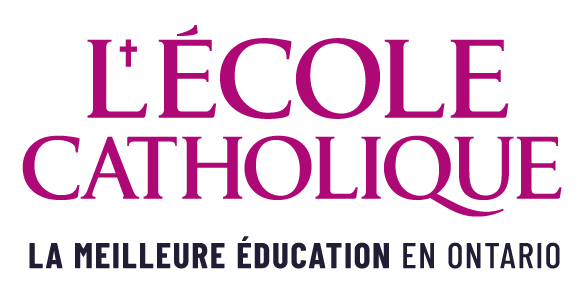Did you know that 1.5 million Ontario residents speak French and that 622,415 of them are Francophones?
Almost 18% of Canadians are bilingual. Yet, the country has two official languages, and much of the world is bilingual. Some Canadians have the advantage of living in a French-speaking neighbourhood and learning French at a good school. If you live in Northern Ontario, that could include you!
Knowing the many advantages of speaking two languages rather than only one, many parents want to emphasize French education in schools. Whenever the question of choosing the best school to learn French however, a debate arises, and this is particularly the case in Northern Ontario: Is it best to study French in an English school or a French one? In Ontario, there are several kinds of programs to learn French in English schools, such as Core French, Extended French and French Immersion . These vary from learning “French as a subject” to studying other subject in “at least 50% of all instruction” in French. This is a good start. But as passionate French advocates, we will always encourage learning French in a francophone school. Any child whose parents attended French school in Ontario or who’s grandparents attended French school is eligible to attend French school. For parents who are eligible and who want to take it one step further – to ensure their child or children acquire a complete Francophone background, Ontario also has French schools, in which students learn in a fully French speaking environment: the staff is Francophone, everyday life at school happens all in French; school activities are in French – not just some classrooms. This is the case for our French Catholic School Board at CSCDGR; our schools are proudly and fully Francophone.
Learning a language is like training for a sport. When training, you try to find the best coach, the person who can make you improve and make you better. There is no better coach for your child to learn French, than a French teacher at the Conseil scolaire catholique des Grandes Rivières.
How Francophone Schools Work
Francophone schools practice total immersion. From the moment students enter the school to the moment they leave, they will be surrounded by the French language. Their teachers will be native French speakers, and all their classes will be taught in French, with the exception of English classes of course – being in a French school does not mean your child’s English will suffer: on the contrary! We are proud to offer quality language classes in English as well. Our students become fully bilingual.
Students enroll in these schools at a young age so they learn French as their primary language. This fosters French-Canadian culture while teaching students the language.
In Ontario, both Francophone school systems – Catholic and public – are publicly funded. At CSCDGR, our institutions are Francophone Catholic schools . Therefore, in our schools, the two aspects of the French-Canadian heritage are an integrate-part of our core teaching: our French language, which is spoken by every member of our staff and is the main language of every single one of our schools, as well as our Catholic values.
Living in a Bilingual World
French education is important because our French-Canadian population is a minority living within an anglophone majority. This means that there’s a good chance the child will learn English from the world around them, and there is always a risk to lose French language knowledge if it is not solidly built. At CSCDGR, we have what it takes to create those solid language roots.
Whether you live in a predominantly French village, town or City – where you may need French to talk to your neighbours and maybe attend church – or in an anglophone area, French will always be useful in a predominantly English world in Canada. Not only is it a sought-after skill set in the workforce; but it is a strength culturally also. For instance, a world of literature, music, theatre, television, and arts becomes accessible when one speaks French. Speaking French is the key to accessing another treasure: Francophone communities. In Canada, there are many French-speaking communities across the country and anyone here at home in Ontario will surely agree: our Franco-Ontarian community is a welcoming and warm family that is always thrilled to meet our Francophile friends.
Finally, being a part of a minority group, such as Franco-Ontarians, is a sure way to cultivate open-mindedness and compassion. How? The answer is simple: when one lives in such an environment, we become more attune to the daily reality and challenges that go hand and hand with being part of a minority. Understanding other minorities comes more naturally since we belong to one ourselves; we are alike. Anyone can be open and compassionate of course; but being fully immersed – in the true sense of the word – in a minority world is like fine tuning the minority-sensitivity string of our souls from the get-go; our ears recognize it with ease; our hearts embrace it. And so, one could say, learning French in a minority context helps one become a better person.
The Benefits of Francophone schools
French immersion is a great option of course; however, if you are eligible, we urge you to consider attending or sending your child to our Francophone schools, where they will thrive in a fully French environment.
Our schools offer more than French education. We offer quality education grounded in Catholic values, and in a solid Francophone environment where learning French is a given. If you’re looking for a good school to send your kids to, consider the Conseil scolaire catholique de district des Grandes Rivières (CSCDGR). We can help you find a school near you. All you have to do is contact us.


